![]()
|
Francis
Morley & Co |
Location and period of operation:
|
Francis Morley
(& Co) |
Shelton |
1845 |
1858 |
|
Earthenware, and in particular decorated ironstone, manufacturer at the Broad Street Works, Shelton (Hanley), Stoke-on-Trent, England
|
Previously: Ridgway & Morley
Subsequently: Morley & Ashworth
The London Gazette
3 June 1853
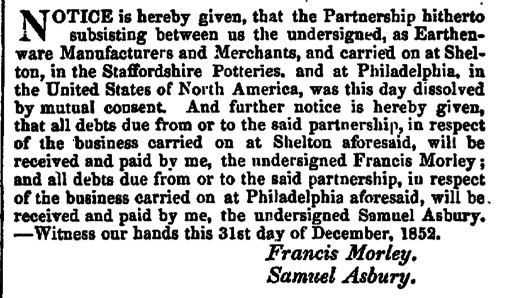
notice that Samuel Asbury
left the business which
was continued by
Francis Morley
Selected
by the Committee for the Staffordshire Potteries
to exhibit at the Paris Universal Exhibition of 1855

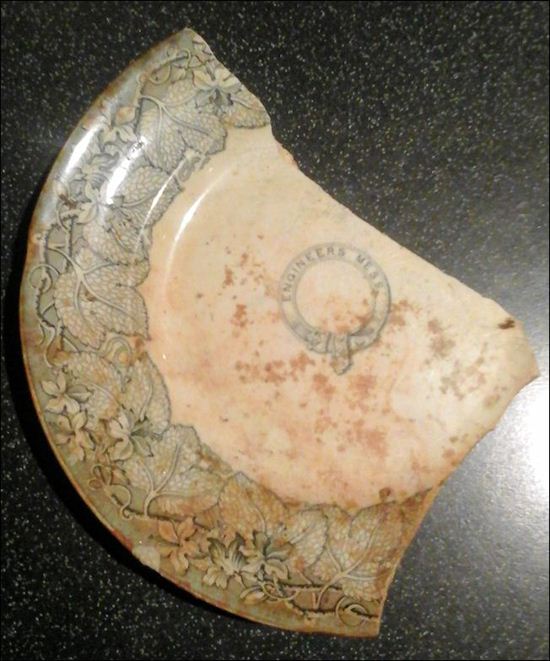 Plate for the Engineeers Mess transfer ware plate - recovered in Feb 2016 by Graham Lockett whilst diving in Portland harbour, Dorset - the plate was part of a Royal Navy ships galley - the harbour was used by the RN for many years |
Vista is the pattern name Shelton is the town name
where
|
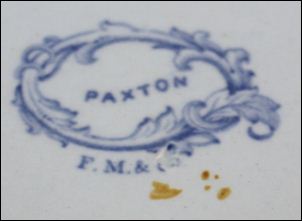
PAXTON
F.M. & Co
PAXTON is the
pattern name
it was available in mono-chrome (grey or blue)
poly-chrome (with a small amount of colour decoration)
or full colour
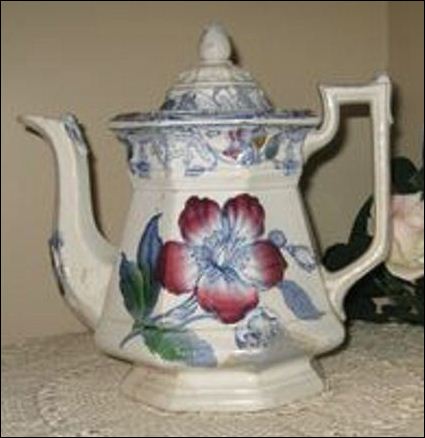
PAXTON pattern teapot in poly-chrome
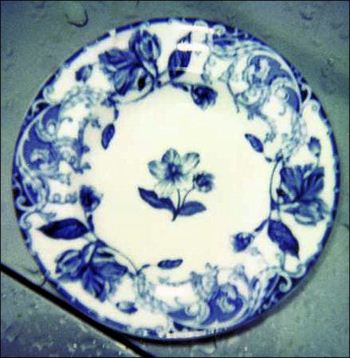 PAXTON pattern in blue mono-chrome (also produced in grey) this would have been the cheapest style as it just had a transfer print in one colour |
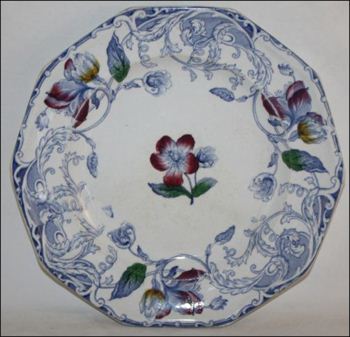 PAXTON pattern in poly-chrome this had the transfer print applied and then selected areas hand painted without any guilding
|
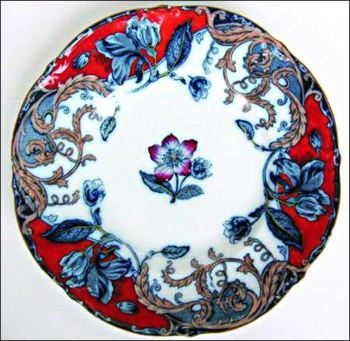 PAXTON pattern in full colour this would have been the dearest style it had a transfer print applied and then was fully hand painted including guilding |
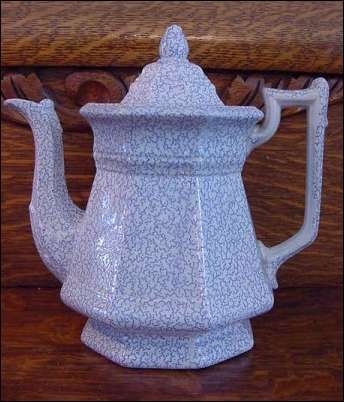
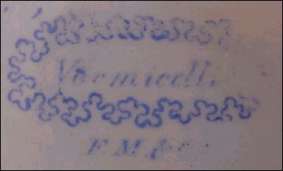
Transfer ware teapot
F.M. & Co
VERMICELLI is the pattern name
this teapot shape was used with a number of different patterns
- compare with the PAXTON pattern teapot above -
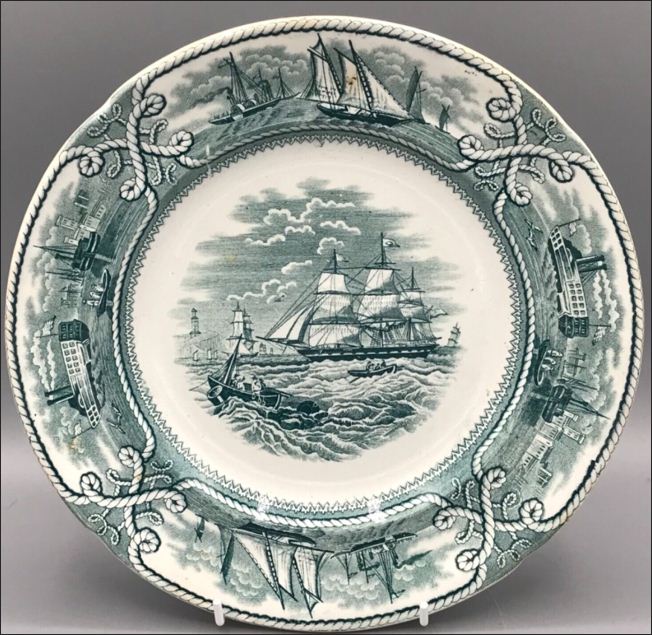 Green transferware plate in the American Marine Pattern There were a number of patterns in the American Marine series |
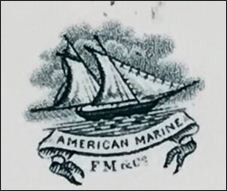 American Marine F.M. & Co |
|
|
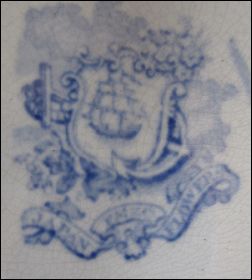 Japan Flowers F.M. & Co "The printed cartouche mark shows a ship within a shield superimposed on an anchor. The title and relevant makers' initials appear on a ribbon below" |
photos courtesy: Georgia Piper
Marks used on ware for identification:
|
Not all ware made by Francis Morley & Co have a makers mark some only have the pattern name, sometimes the same pattern name can be also found with a mark. Some patterns were produced during the partnerships with Ridgway and Morley and were continued by Morley & Co and subsequently Morley & Ashworth. Ware for export to North America sometimes had pattern names and backstamp marks designed to appeal to the American market - such as California, American Marine and marks with the American Eagle Marks with only the initials FM are likely to be 1853-58, the partner Samuel Asbury retired from the business in December 1852.
The Morey partnerships supplied ware to prestigious importers such as Tyndale & Mitchell in Philadelphia, US and the Stiffel Brothers in Odessa, Russia. This ware was often marked with the importers name.
|
F M & Co
F MORLEY & Co
F M
REAL IRON STONE CHINA
ROYAL STONE CHINA
PATENT OPAQUE CHINA
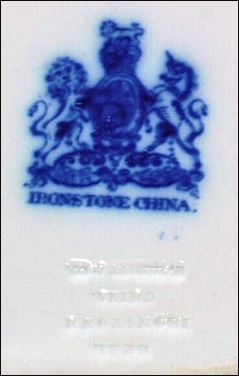
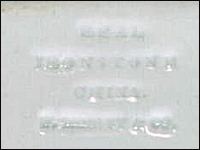
Ironstone China
Real
Ironstone China
F. Morley & Co
this style of arms was used
by Francis
Morley (& Co)
Morley & Ashworth and G. L. Ashworth & Bros
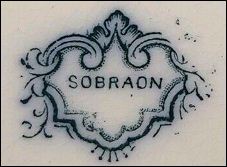 SOBRAON |
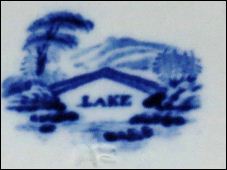 LAKE |
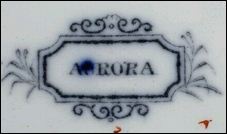 AURORA |
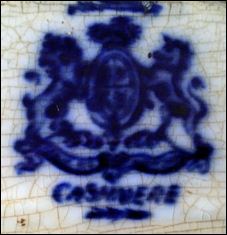 CASHMERE |
Many designs attributed to Francis Morely & Co only have the pattern name and not a makers mark
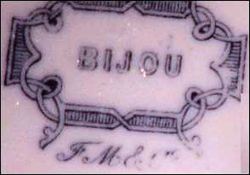 F.M. & Co initials in script style |
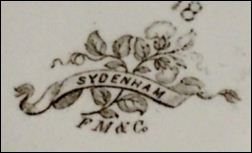 F.M. & Co initials in print style |
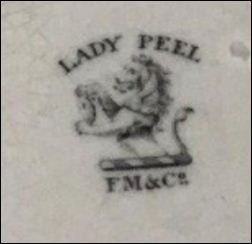 F.M. & Co |
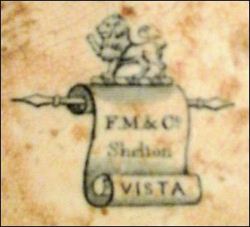 F.M. & Co Shelton |
Lady Peel and Vista were two popular transferware patterns
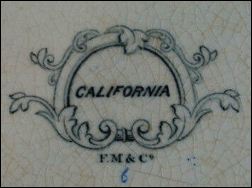 CALIFORNIA F M & Co |
 AMERICA F M & Co |
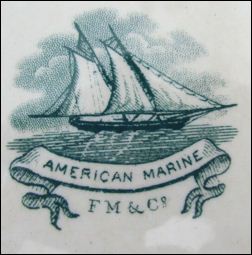 AMERICAN MARINE F M & Co |
some pattern names and backstamp
marks were
designed to appeal to the American market
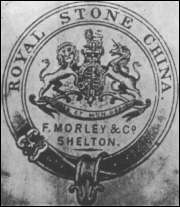 Royal Stone China F. Morley & Co Shelton |
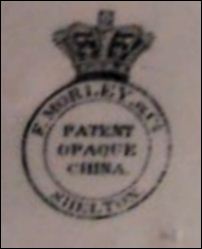 Patent Opaque China F. Morley & Co Shelton |
Typical marks with the British
Royal Arms and the 'Mason's' crown mark
Shelton is the town name
where the works were located
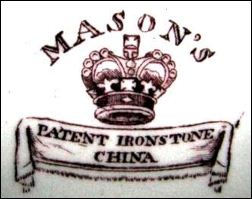
Mason's
Patent Ironstone China
In 1852 Francis Morley bought the moulds of C. J. Mason, inventor of Mason's Ironstone
China
The Mason's Ironstone China mark was continued by Francis Morley and by
sucessive companies
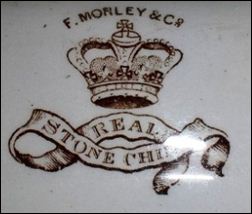 F Morley & Co Real Stone China |
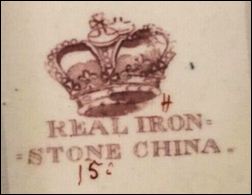 Real Stone China |
 F Morley & Co |
these Francis Morley marks, used
on ironstone ware,
incorporate the crown mark from the original Mason's mark
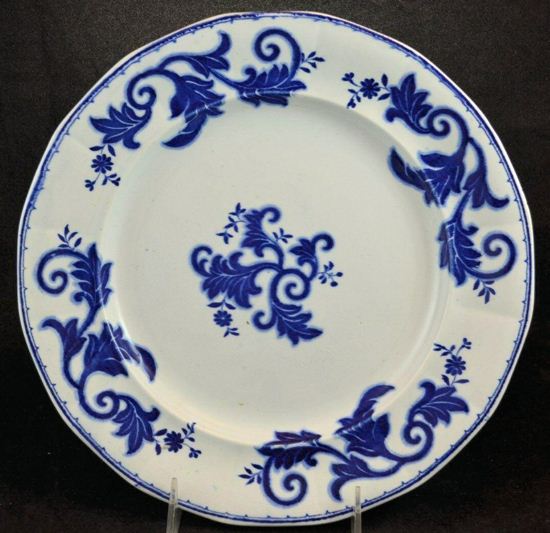
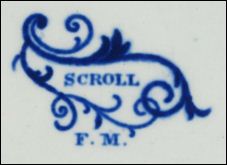
Flow-blue with guilding - plate
in the SCROLL pattern
This pattern was also produced by the
predecessor Ridgway & Morley
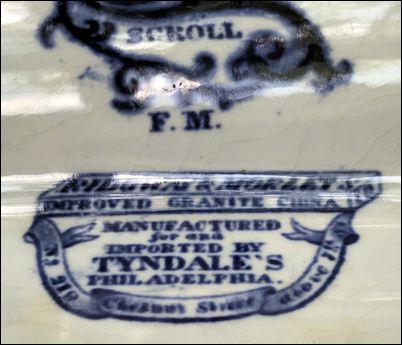 F M Ridway & Morley's Improved Granite China Manufactured for and imported by Tyndales's Philadelphia SCROLL is the pattern name NOTE: The lower mark is that
of Ridgway & Morley the upper one is that of Francis Morley. |
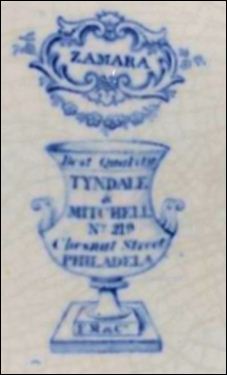 Best Quality Tyndale & Mitchell No. 219 Chestnut Street Philadela F M & Co ZAMARA is the pattern name
|
Both of these
patterns were made by Ridgway & Morley and Francis Morely & Co
they were made for general sale and also for Tyndale.
Morley was recorded
as an earthenware merchant in Philadelphia, North America
Harold Tyndale (later his son Hector
Tyndale) was an importer and retailer of china, earthenware & glass
later he was joined by E.P. Mitchell and the business becameTyndale & Mitchell Co.
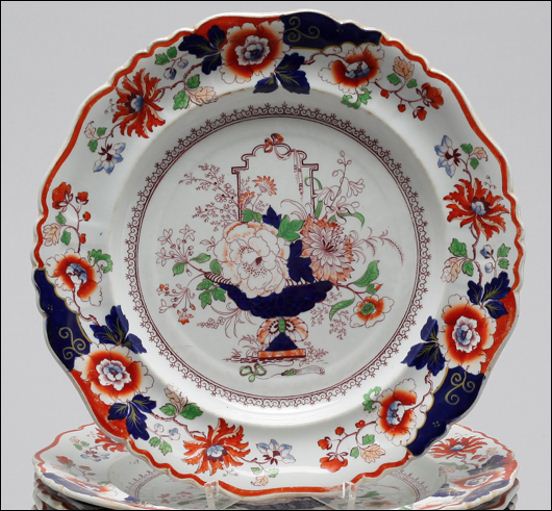
'Real Iron-Stone China'
plates produce by F. Morley using the moulds/patterns of C.J. Mason
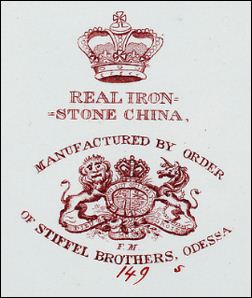 this 'Real Iron-Stone China' mark was originally used by Mason's - Morley purchase the moulds & patterns from him in 1852 |
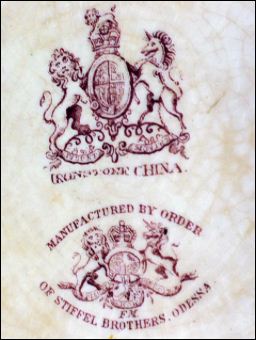 |
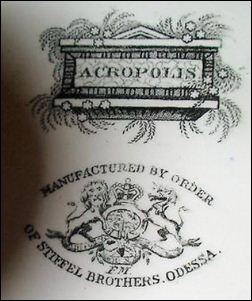 |
Manufactured
by order of Stiffel Brothers, Odessa
FM
Francis Morley
produced this ware for the show rooms of the Stiffel Brothers
The mark includes the British
Royal Arms
The Stiffel brothers had a show
room in Odessa,
Russia
from 1819 to 1858 it was a free port

Handbook for Northern Europe, part II Finland and Russia, 1848 - page 401
Information on the Broad Street Works:
- Broad Street Works - dates and description of working conditions -
- details of the Broad Street Works -
Questions, comments, contributions? email: Steve Birks